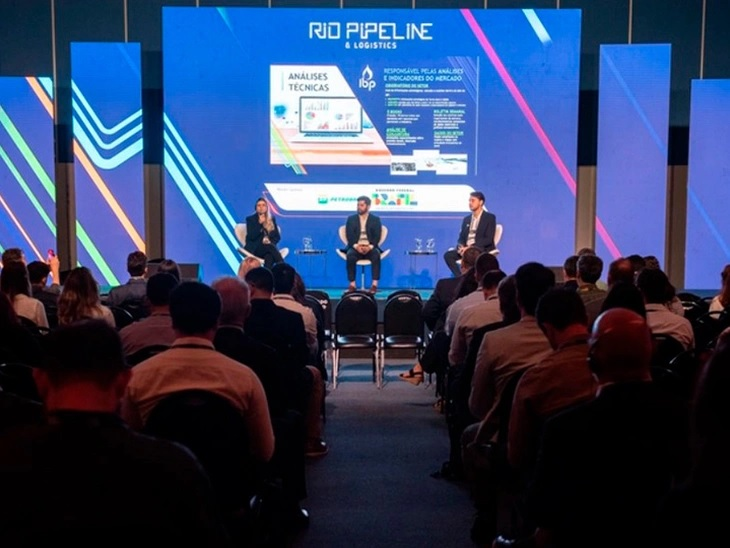
 Rio Pipeline & Logistics 2025
Rio Pipeline & Logistics 2025
T&B Petroleum/Press Office IBP

Coverage sponsorship
Pipeline and logistics infrastructure is a key driver of competitiveness for Brazil’s oil and gas industry. This was the central point of the panel “Panorama dos Investimentos em Infraestrutura de Dutos e Logística no Setor de O&G no Brasil" (Overview of Investments in Pipeline and Logistics Infrastructure in Brazil’s O&G Sector) led by the IBP Technical Analysis team during Rio Pipeline & Logistics 2025. The session brought together Isabela Costa, IBP’s Technical Analysis Manager, Aldren Vernersbach, IBP’s Senior Economist, and Leonardo Lima, IBP Economist, who presented a detailed assessment of the current scenario, challenges, and investment outlook.
According to Isabela Costa, IBP’s role is to provide strategic data to support decision-making. “The Technical Analysis area has been working to consolidate information into products such as the IBP Monitor, snapshots, e-books, and market analyses, which provide clarity to the sector and allow trends to be tracked quickly and reliably,” she emphasized.
Next, Aldren Vernersbach stressed the importance of modernizing existing infrastructure. “Expanding and modernizing pipelines and logistics is essential to ensure secure and competitive supply. To enable these investments, the country needs to advance in legal certainty, regulatory stability, and long-term national plans,” he said. The economist showed that Brazil currently has over 20,000 kilometers of pipelines, but the growing demand for oil products through 2034 will require greater modal integration and better use of installed capacity.
Meanwhile, Leonardo Lima highlighted the role of financial instruments such as incentivized and infrastructure debentures. “In this context, infrastructure debentures have the potential to reduce costs for companies and attract foreign capital, expanding conditions for new projects,” he explained.
The panel reinforced that investments in pipelines and logistics not only increase transportation efficiency and reduce emissions but also strengthen the country’s energy security and contribute to a just energy transition. Among the issues analyzed were crude oil and oil products storage capacity, pipeline network expansion projects, and the range of financial instruments available to support the sector.
Closing the panel, Aldren Vernersbach emphasized that the sector’s logistics infrastructure is essential not only for reducing emissions and advancing the energy transition but also for enabling the transportation of biofuels.
Study reinforces the strategic role of infrastructure
The study prepared by IBP’s Technical Analysis department highlights that logistics infrastructure is essential to sustain the production and distribution of goods, reduce transportation costs, and enhance economic competitiveness. In the oil and gas sector, the pipeline network, port terminals, and storage capacity are crucial to ensuring energy security and supply efficiency.
The analysis shows that oil and gas account for 43.6% of Brazil’s final energy consumption, making the expansion and modernization of infrastructure even more urgent. Among the pillars for enabling new investments, the study points to legal certainty and regulatory stability, long-term national planning, regulations that foster competitiveness, and suitable financial instruments.
In conclusion, the document emphasizes that strengthening pipeline infrastructure goes beyond physically expanding the existing network. It requires a stable institutional environment, coordination between public and private financing instruments, and integration with the energy transition agenda. More than meeting present demand, it is about ensuring energy security and competitiveness for the coming decades.
The full study presented by the team is available at this link.
Contact us